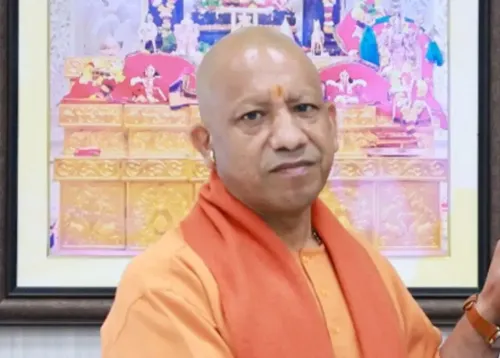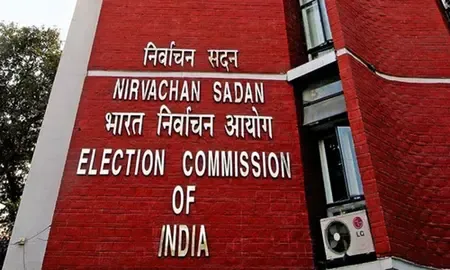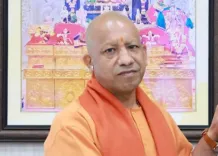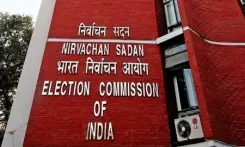Will GST Reductions on Bio-Pesticides and Micronutrients Empower Farmers?
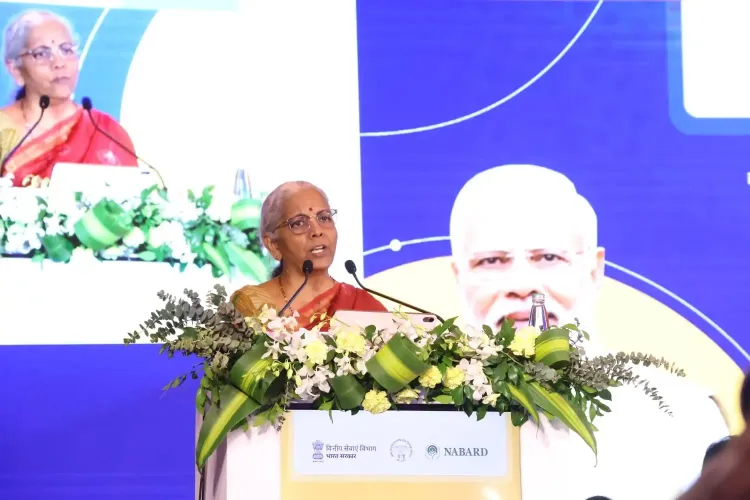
Synopsis
Key Takeaways
- GST cuts on bio-pesticides will reduce costs for farmers.
- Direct financial support through PM-Kisan scheme of Rs 6,000 annually.
- PM Dhan Dhaanya Krishi Yojana enhances agricultural practices.
- PM-FME scheme boosts local food processing initiatives.
- Koppal district contributes significantly to state’s agricultural output.
Koppal (Karnataka), Oct 15 (NationPress) The decrease in Goods and Services Tax (GST) on bio-pesticides and micronutrients is set to provide immediate advantages for our farmers, empowering them significantly, stated Finance Minister Nirmala Sitharaman on Wednesday.
During her address at the inauguration of a farmers’ training and common facility center for agro-processing in Methagal village, Koppal district, the Finance Minister noted that Prime Minister Narendra Modi has led efforts to simplify GST, making it more advantageous for the populace.
“We initiated GST from the very first day of Navratri. The tax rates on numerous items, including agricultural equipment like tractors and solar-powered machinery utilized by our ‘annadatas,’ have been lowered,” she conveyed to the attendees.
FM Sitharaman also highlighted that under the Pradhan Mantri Kisan Samman Nidhi (PM-Kisan) scheme, an annual sum of Rs 6,000 is directly deposited into farmers' bank accounts via direct benefit transfer (DBT).
“In Karnataka, more than 43 lakh farmers are benefiting from the PM-KISAN initiative,” she stated.
The Finance Minister elaborated that under the PM Dhan Dhaanya Krishi Yojana, 100 districts nationwide have been selected, with Koppal being one of them.
“This program, with a budget of Rs 24,000 crore, was first introduced in the 2025-26 Budget and aims to support 100 districts, including Koppal. Farmers will benefit from quality seeds, training in natural farming, improved irrigation facilities, and better market access,” she elaborated.
Koppal district is characterized by its rich agricultural diversity, contributing approximately 10 percent of the state’s paddy output.
“The fertile lands here produce a range of fruits including mangoes, guavas, grapes, pomegranates, papayas, and figs. The farmers of Koppal have upheld this agricultural heritage for generations, and it is the government’s duty to ensure they receive fair compensation for their produce,” she remarked.
“When discussing value addition, the PM Formalisation of Micro Food Processing Enterprises (PM-FME) scheme is noteworthy. Launched in 2020, this initiative offers financial, technical, and business support to assist local entrepreneurs in establishing or upgrading micro food processing units across all districts,” Sitharaman added.
The initiative aims to empower rural entrepreneurs to convert local crops—be it millets, fruits, or groundnuts—into market-ready packaged foods, snacks, or ingredients.
Since its launch, the Centre has allocated over Rs 3,700 crore to states and UTs for various components of the scheme from FY 2020-21 to FY 2025-26.
“Loans exceeding Rs 11,000 crore have been approved for individual micro food processing units and collectives nationwide. Additionally, more than one lakh entrepreneurs have undergone training under PM-FME, enhancing their skills and empowering them to expand their businesses,” the Finance Minister noted.


